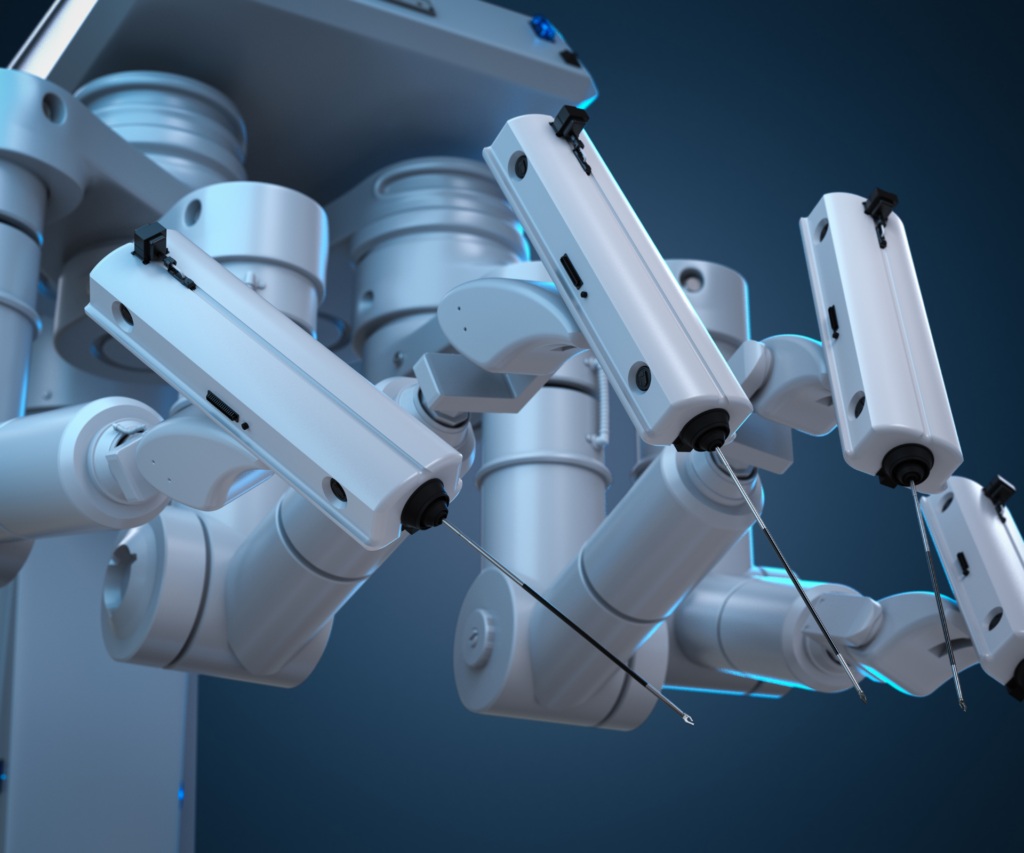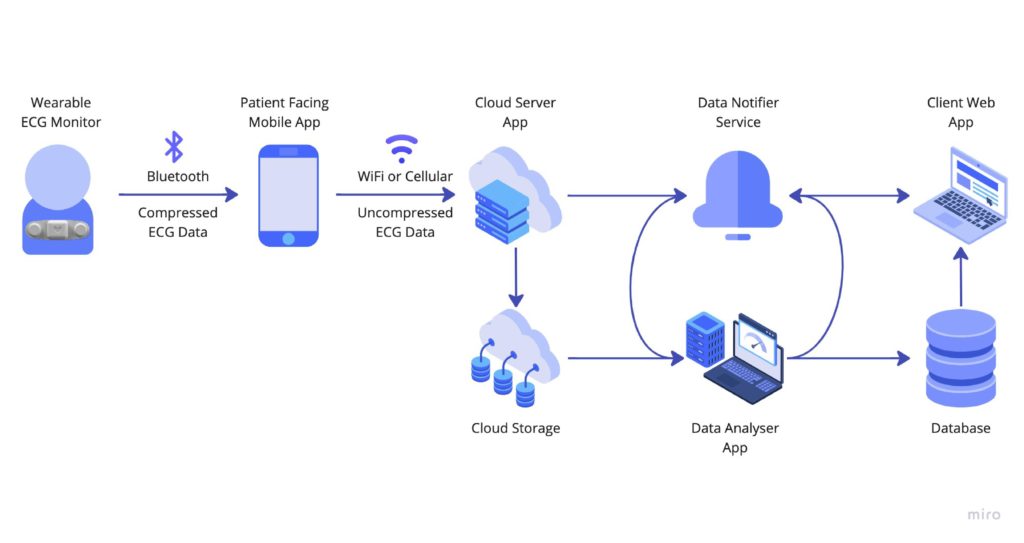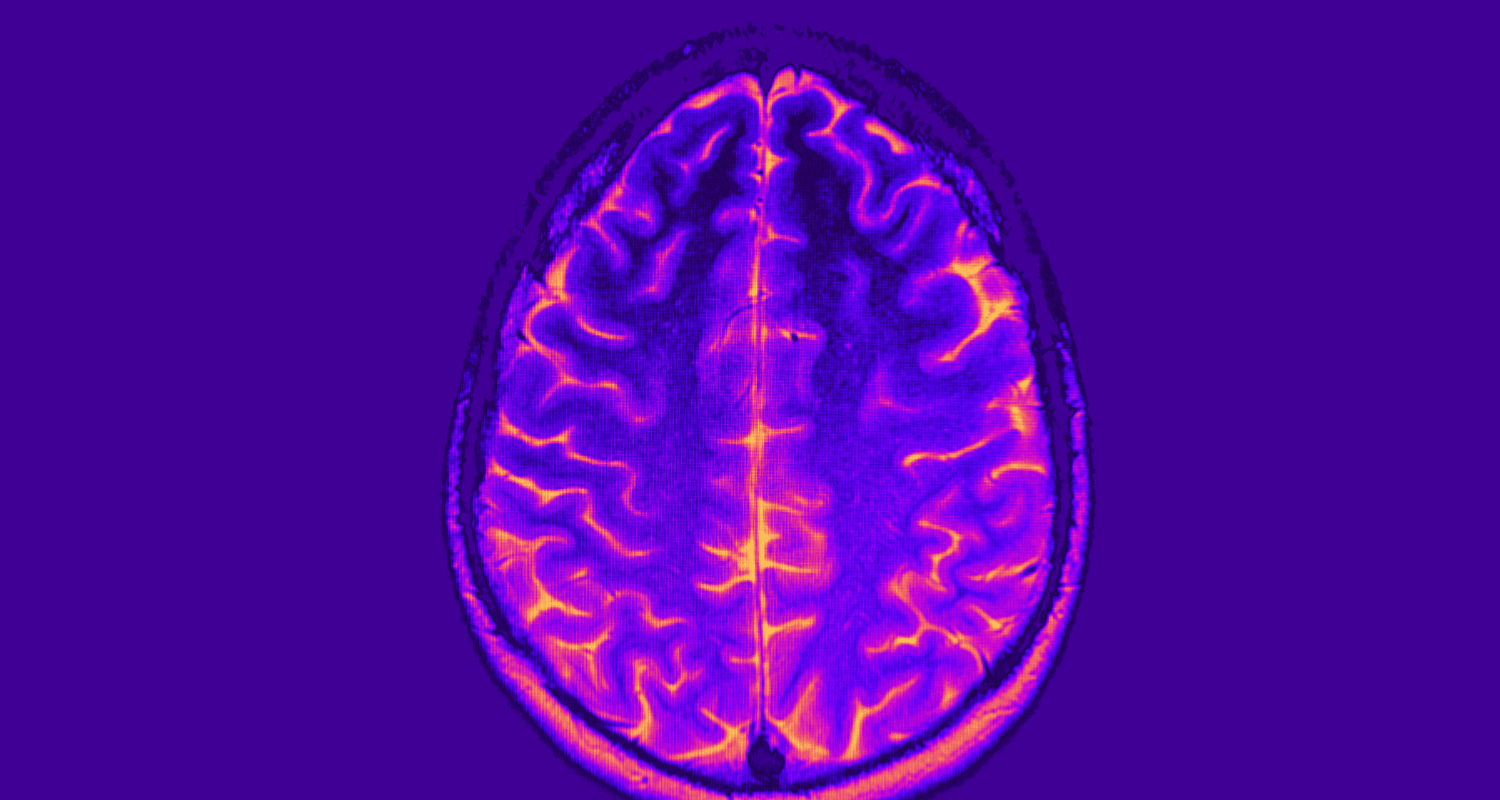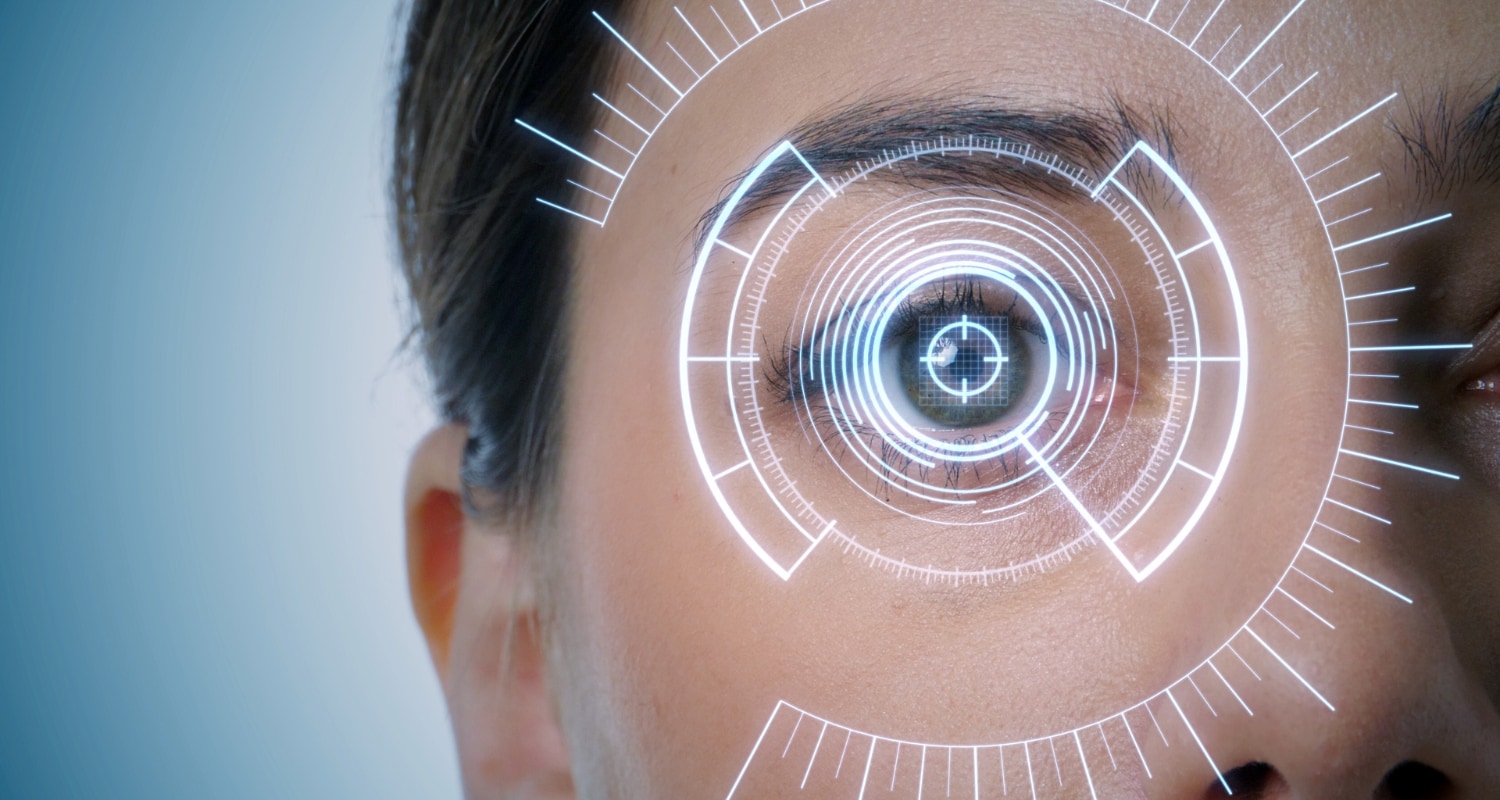The world where a machine can scan your body and accurately diagnose any health issue within seconds, or where a virtual nurse can monitor patients 24/7, providing real-time data to doctors, may sound like science fiction. However, it is rapidly becoming a reality thanks to the growing application of Artificial Intelligence in healthcare operations.
The global market for AI in healthcare is expected to reach a staggering $45.2 billion by 2026, up from $4.9 billion in 2020. These numbers are not surprising, given that AI is revolutionizing healthcare in ways that were inconceivable just a few years ago. From diagnosing diseases with impeccable accuracy to predicting patient outcomes and optimizing resource allocation, AI is proving to be a game-changer.
The transformative potential of AI for healthcare is enormous. So, if you want to stay ahead and understand how this cutting-edge technology is shaping the healthcare industry, then this article is a must-read.
Top 10 Uses of AI in Healthcare
As the healthcare industry progresses, AI and Machine Learning are playing an increasingly vital role in various operations and services. With their capacity to analyze extensive datasets and offer valuable insights, AI is being utilized to improve efficiency, accuracy, and patient outcomes.
AI’s applications in healthcare are wide-ranging and have a significant impact. Let’s objectively explore the top 10 uses of AI technology in healthcare and examine how this technology is reshaping the industry.
Cancer Diagnosis
In the fight against cancer, AI has emerged as a powerful ally. Clinicians spend countless hours examining medical images to detect the faintest signs of cancer. AI comes in like a wizard, able to sift through these images at lightning speed with accuracy that sometimes surpasses human experts. For instance, Google’s DeepMind AI has demonstrated an astonishing capability to analyze 3D mammograms for breast cancer with fewer false positives and negatives compared to human radiologists.
Beyond detection, AI also plays a crucial role in treatment planning. IBM’s Watson for Oncology delves into a vast pool of medical data to suggest personalized treatment plans, keeping oncologists abreast with the latest research and therapies. Additionally, AI is revolutionizing drug discovery by predicting the efficacy of molecules, thus expediting the development of cancer drugs. Through early detection, tailored treatments, and accelerated drug discovery, AI is making significant strides in cancer care.
Chatbots for Customer Service
Chatbots have been making waves in various industries, and artificial intelligence and healthcare are no exception. By providing instant responses and round-the-clock availability, chatbots are significantly enhancing customer service in healthcare. One of the shining examples is Florence, a personal nurse chatbot. Florence reminds users to take their medication, provides information about various diseases, and even helps to find specialists and make appointments. It’s like having a personal healthcare assistant available 24/7 at your fingertips.
Moreover, chatbots equipped with Natural Language Processing (NLP) have proven to be invaluable during the COVID-19 pandemic. They have been deployed on various healthcare platforms to provide timely information, assess symptoms, and guide users to the appropriate healthcare resources. An example of this is the CDC’s Clara, which was used extensively to screen symptoms and offer guidance during the pandemic.
Virtual Health Assistant
Virtual health assistants (VHAs) represent one of the top uses of AI in healthcare. They bridge the gap between patients and healthcare professionals, ensuring continuous care even outside the clinical settings, and empowering patients to take an active role in managing their health.
Take, for example, Molly – a virtual health assistant developed by Sense.ly. Molly engages with patients in natural conversation, tracks their symptoms, and provides personalized feedback and educational materials. It’s like having a caring nurse who’s always there for you. Another example is Ada, an AI-powered app that helps users understand and manage their health. With a simple, user-friendly interface, Ada asks users questions about their health and provides insights and recommendations based on the symptoms.
Using Robots in Surgery
Robotic systems powered by AI are revolutionizing the operating room, providing surgeons with advanced capabilities during complex procedures. These systems not only enhance surgical precision and accuracy but also contribute to reduced recovery times and improved patient outcomes. By offering surgeons enhanced visualization, greater control, and real-time data, AI is redefining the standards of surgical care.

Among the notable AI-enabled robotics in healthcare, the da Vinci Surgical System stands out. With its multiple robotic arms and a 3D high-definition vision system, da Vinci enables surgeons to perform minimally invasive surgeries with unmatched precision. The system’s AI algorithms provide real-time data to the surgeon, enhancing instrument placement accuracy and mitigating the risk of complications.Among the notable AI-enabled robotics in healthcare, the da Vinci Surgical System stands out. With its multiple robotic arms and a 3D high-definition vision system, da Vinci enables surgeons to perform minimally invasive surgeries with unmatched precision. The system’s AI algorithms provide real-time data to the surgeon, enhancing instrument placement accuracy and mitigating the risk of complications.
Rare Disease Treatment
AI solutions in healthcare are playing a crucial role in advancing the diagnosis and treatment of rare diseases, which often pose challenges due to their low prevalence and a lack of comprehensive data. By employing AI algorithms, healthcare professionals can analyze extensive datasets to identify patterns and associations that might otherwise go unnoticed.
One remarkable example is the use of AI in diagnosing rare genetic disorders through facial analysis. DeepGestalt, an AI technology developed by FDNA, analyzes facial images to identify patterns indicative of various genetic conditions. This technology has proven to be highly effective, outperforming clinicians in identifying a range of genetic syndromes.
Another application of AI is in drug repurposing. Developing new drugs for rare diseases is often economically unfeasible due to the small patient population. AI can analyze existing drugs and their interactions to find alternative uses for them.
Healthcare Operations Management
The role of AI in healthcare operations management is becoming indispensable as it streamlines processes, optimizes resources, and improves the overall efficiency of healthcare facilities. From patient scheduling to supply chain management, AI is enhancing various aspects of operations.
One way AI is being utilized is through intelligent scheduling systems. For example, the AI-powered system by Qventus helps hospitals forecast patient demand and optimize staff scheduling. By predicting patient influx, the system ensures that there are enough staff members available during peak times, while avoiding overstaffing during lulls.
Your next read: Ways to Specify Healthcare Process Improvement
Remote Patient Monitoring
Remote Patient Monitoring (RPM) stands as one of the top applications of AI in healthcare, marking a shift towards more personalized and accessible care. Through RPM, AI algorithms analyze data from wearable devices and health monitors, enabling healthcare providers to keep tabs on patients’ health in real-time, regardless of their location.
An example of AI in RPM is the use of smartwatches and fitness trackers, such as the Apple Watch, which can monitor heart rate, activity levels, and even detect irregular heart rhythms. With AI algorithms, these devices can notify users and healthcare providers of potential health issues, facilitating timely intervention. For example, Empeek designed a remote telemetry system that consists of wearable patch, mobile app, and AI algorithm that analyze heart abnormalities to prevent serious health events. Here is the logic behind the remote telemetry system:

Drug Discovery and Development
Drug discovery and development pose significant challenges in terms of complexity, cost, and time. However, AI has emerged as a transformative force in this field, ranking among the top applications of AI in healthcare. By analyzing extensive datasets and predicting molecular interactions, AI greatly accelerates the drug development pipeline while minimizing resource requirements.
An impressive illustration of AI’s impact is demonstrated by Insilico Medicine, a company that utilizes AI for discovering new molecules in drug development. Leveraging deep learning algorithms, Insilico accurately predicts the biological activity of molecules, facilitating the identification of potential drug candidates at an unprecedented pace. In a notable achievement, the company successfully designed, synthesized, and validated a novel drug candidate within a mere 46 days, a fraction of the time traditionally required.
Medical Imaging Analysis
AI has brought about a profound transformation in medical imaging analysis, emerging as one of the leading applications of healthcare AI. By employing advanced algorithms, AI enables the precise and rapid analysis of medical images such as X-rays, MRIs, and CT scans. This capability assists in the diagnosis and treatment of diverse conditions. AI’s impact in medical imaging analysis extends beyond enhancing the speed and accuracy of diagnoses, playing a crucial role in early disease detection and management.
Zebra Medical Vision serves as an exemplary case in point. This organization utilizes AI algorithms to interpret medical imaging data and identify a wide range of diseases, including liver diseases, cardiovascular issues, and lung cancer. The tool is particularly valuable in detecting early signs of diseases, enabling timely intervention and improving patient outcomes.
Precision Medicine
Precision medicine, which tailors healthcare to the individual characteristics of each patient, is being significantly enhanced by AI, making it one of the key applications in healthcare. AI’s ability to analyze enormous datasets, including genetic information, allows for a more accurate and personalized approach to both diagnosis and treatment.
One noteworthy example is Deep Genomics, which employs AI in the identification of patterns in genetic data that are associated with diseases. Their platform predicts how genetic variations might impact disease development and helps in the creation of targeted therapies, paving the way for personalized medicine based on an individual’s genetic makeup.
To learn more about how AI is improving the healthcare industry, check out recent blog post.
Ethical Considerations and Challenges in Healthcare and AI
As you can see, AI becomes more integrated into healthcare operations, so it is imperative to address the ethical concerns that arise. Among these concerns are data privacy and security, bias and fairness, transparency, and accountability.
Data Privacy and Security
It is a paramount concern, as using AI in healthcare often requires access to sensitive patient data. There is a need to ensure that AI systems comply with regulations such as HIPAA in the US, and that patient data is protected against unauthorized access and breaches.
Bias and Fairness
This is another major ethical issue. AI systems are trained on datasets that may contain biases. For instance, if an AI system is trained on a dataset primarily consisting of one demographic group, its performance might be suboptimal for other groups. This can lead to misdiagnosis or inappropriate treatment recommendations, especially for underrepresented populations.
Transparency
It is crucial in the implementation of AI in hospitals. Healthcare professionals and patients need to understand how AI systems make decisions. Black-box AI models that do not provide insight into how conclusions are drawn can be problematic, particularly if an AI system makes an error or provides a recommendation that conflicts with a physician’s judgment.
Accountability
It is closely linked to transparency. When an AI system is used in patient care, it’s vital to establish who is responsible if the system fails or makes an error. There is a need for clear protocols regarding the liability of healthcare providers and AI developers.
Conclusion on AI and Healthcare
The integration of AI into healthcare operations marks a pivotal moment in the evolution of patient care. From diagnostic accuracy and precision medicine to operational efficiency and innovative drug discovery, AI is the driving force behind numerous advancements. As healthcare organizations seek to harness the full potential of AI, it is essential to proceed with caution and integrity, addressing ethical considerations and ensuring the implementation of AI is patient-centric and value-driven.
If your healthcare organization is eager to tap into the transformative power of AI, it’s critical to have the right partner by your side. Empeek is a company that specializes in AI development, providing tailor-made solutions to meet the unique needs and challenges of the healthcare industry. With a proven track record and expertise, Empeek is equipped to help your organization navigate the complexities of AI integration, ensuring seamless implementation.








